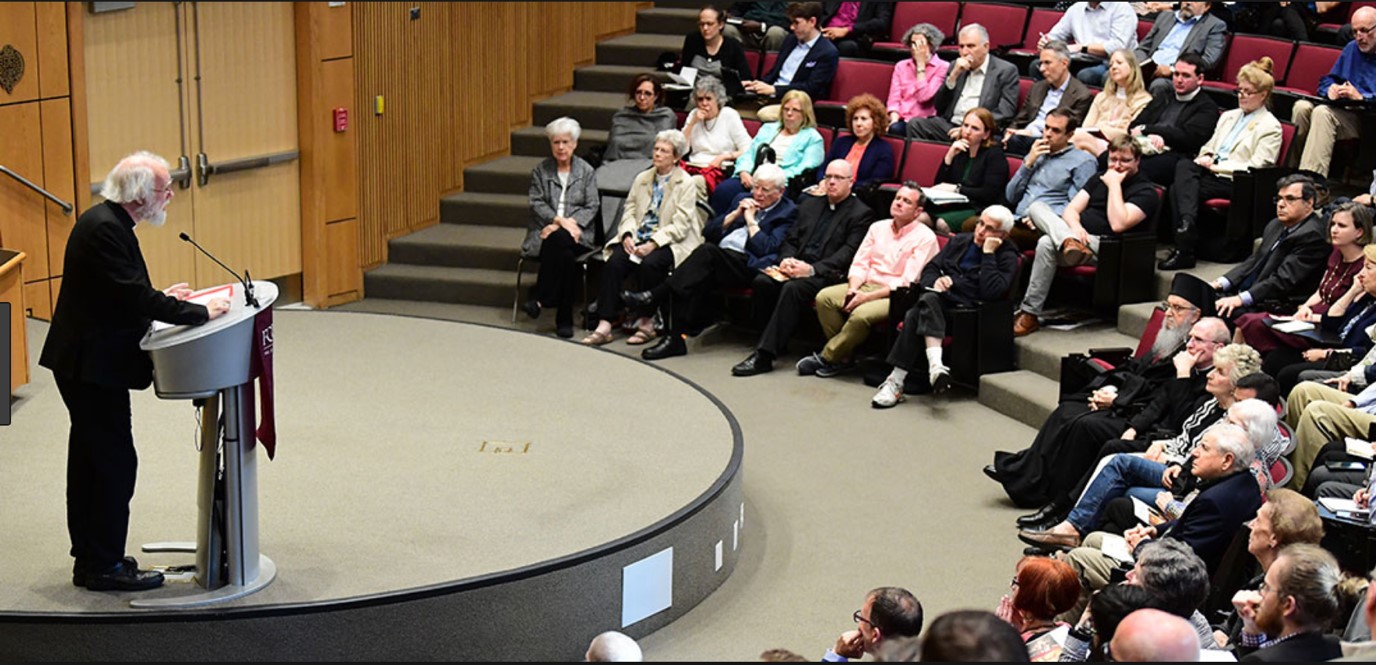- Home
- About us
- Students
- Courses
- Research
- Library
- News & Events
- Gallery
- Contact
- Our Blog
Latest News

2019 Patterson Triennial Conference, Fordham University (New York)
Jun 06, 2019
admin
2019 Patterson Triennial Conference, Fordham University (New York)

St Andrew’s was recently represented by Dr Philip Kariatlis at the 2019 Patterson Triennial Conference at Fordham University (New York) which took place from 3-5 June. The conference was organised by the Orthodox Christian Studies Centre of Fordham University, the co-directors of whom are Professors George Demacopoulos and Aristotle Papanikolaou.
The general theme of the event, “Faith, Reason, Theosis” brought together speakers from Orthodox, Roman Catholic and Protestant Christian traditions with the aim of examining this topic from their perspectives. The overarching aim of the Patterson Conferences at Fordham is to create a forum for multi-lateral dialogue so that scholars representing the different Christian traditions may seek ways to respond to contemporary challenges in a spirit of shared exploration.
The keynote speakers were: Bishop Rowan William, former Archbishop of Canterbury (University of Cambridge), and Professors David Bentley Hart and Jean Porter (University of Notre Dame). Other speakers included: William Abraham (Southern Methodist University), Peter Bouteneff (St Vladimir’s Orthodox Theological Seminary), Carolyn Chau (Universituy of Western Ontario), Robert Davis (Fordham University), Stephen J. Davis (Yale University), Andrew Prevot (Boston College), Ashley Purpura (Purdue University), Kirsi Stjerna (Pacific Lutheran Theological Seminary) and Michele Watkins (University of San Diego).
Whilst in the past, theosis and reason were understood, more often than not, to be mutually exclusive terms, the conference clearly highlighted that human reason, a constitutive element of the human person, also awaits its renewal, transformation and indeed deification. Indeed, the conference underlined that in its vision of deification, the Patristic tradition had already drawn a connection between the Jesus Christ, the Logos of God, and the rational human being [Λόγος—λογικός].
Dr Kariatlis’ paper was titled “Deification as Christification and Human Becoming.” Upon conveying the greetings and blessings of His Eminence Archbishop Makarios of Australia and expressing the College’s gratitude to the Convenors of the Conference for their gracious invitation to have St Andrew’s represented at this important ecumenical event, Dr Kariatlis explored the way in which theosis has been largely understood in the Eastern Orthodox Tradition as humanity’s union with the incarnate Son of God, resulting in our being made Christ-like. Amongst other points, the paper brought to the fore that deification ought not to be seen merely as an antidote to the fall; that it is a divinely bestowed gift of unity with Christ requiring our human response; that the result of deification is that we are incorporated into Christ and that in so doing we discover what it truly means to be human.

.jpg)





.png)